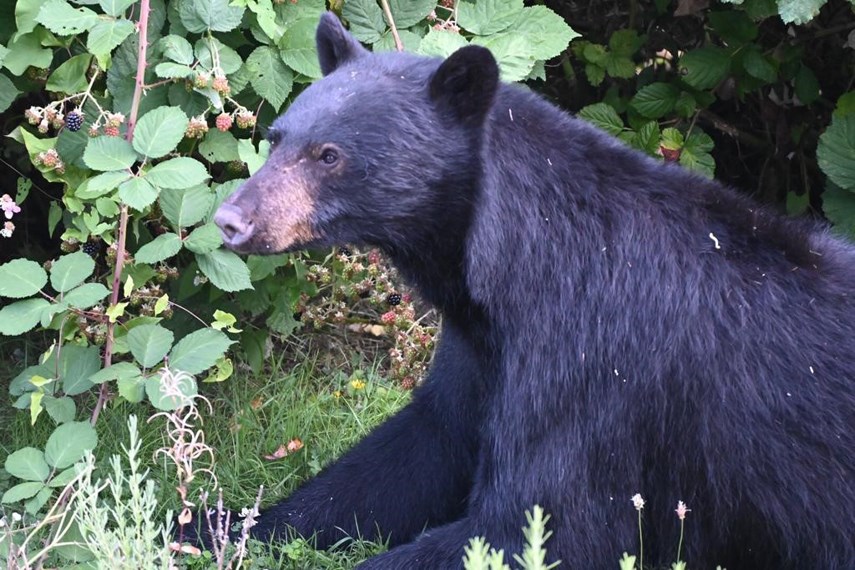Luci Cadman is exasperated. Despite putting in extremely long days and unprecedented efforts at community education through her work with the North Shore Black Bear Society, seven North Shore bears were killed in month of July.
“To think that we’ve lost these members of our community, it’s just absolutely devastating,” Cadman said, near tears. “It’s a terrible, terrible time for our bears, very sadly.”
Cadman said she’s been told by conservation officers that they are too busy to brief her on any specifics of the most recent deaths, including where and why the bears were killed. The society targets their education efforts in areas where traps have been set or bear conflicts have been reported.
What the COS could tell her was that six of the bears were shot after entering homes or confined spaces, and one was euthanized after being struck by a driver on Highway 1 in Caulfeild. That bear had a cub, likely old enough to survive on its own but on July 9, a mother bear was trapped and shot after entering an Altamont home’s kitchen, orphaning a six-month-old cub in the process. That prompted an all-out search for the cub. Conservation officers did put out a trap, hoping to catch it and take it to Critter Care for rehabilitation, but they had no luck. The last confirmed sighting of the cat-sized cub was about two weeks ago, but Cadman said the society has since been told by provincial staff the young bear is no longer a priority to be trapped unless its behaviour or health changes for the worse. It faces a world of dangers including the highway, coyotes and other bears, with scant training from its mother, Cadman said.
“It’s really frustrating,” she said. “It's a very, very dangerous location for a skittish young cub to be, and this cub is no bigger than a very healthy raccoon – so very small, very vulnerable.”
Other recent high-profile incidents the Black Bear Society is aware of include a bear coming after backyard chickens that were not being kept in a proper hen house behind an electric fence, in accordance with the District of North Vancouver’s bylaws; a bear being lured in through an open kitchen door where a fresh pie was cooling, and a West Vancouver family inadvertently trapping a bear in their yard after it was drawn in by a bird feeder on their deck.
“Entering a confined space, whether that's a garage or shed or a home is not tolerated, but could have been prevented, absolutely, had the bird feeder not been there,” Cadman said.
The District of North Vancouver has being doing a “phenomenal job” with enforcement, but attractants remain a major problem, Cadman said.
“We're seeing that even in areas we’ve saturated with education, people are not acting on advice to collect fruit. We're seeing bird feeders, outdoor freezers, garbage carts, and organics carts being stored outside,” she said. “It is absolutely not acceptable to allow a bear to find food on your property.”
It has been an especially bad year for bears getting into homes, Cadman said, so unless you are immediately nearby, never leave ground-level doors open, she urged.
Living on a forest edge means contact with bears is inevitable, Cadman said, which comes with a responsibility for us to better understand them and their behaviour.
When a bear does arrive on a residential property, people tend to make mistakes, including trying to frighten the bears with aggressive, loud noises, which is no longer advised. That can make the bear stressed, Cadman said. The best thing to do is get to a safe place and in a calm but very firm voice, make the bear know it has to move on, she said.
“We've got to teach these animals – they're very, very teachable – a clear message that there is no food. And if you come to my property, don't get comfortable,” she said.


.png;w=120;h=80;mode=crop)

